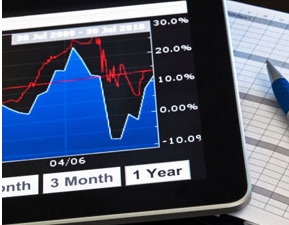Mobile business intelligence (BI) has started to cascade down in organisations over the past year, Adrian Simpson, chief innovation officer, SAP UK, will tell delegates to IRM UK's Data Warehouse & Business Intelligence conference in London next week.
He said that SAP is finding that customers are using BI as a way of getting into mobility more generally.

"It started with analytics for boardroom executives and other senior managers who wanted to gain visibility into their KPIs [key performance indicators]," said Adrian Simpson.
"They are coming to IT and saying their competitors are getting BI on mobile devices, so why can't they? Then it is filtering down."
But hasn't the advent of mass mobile BI been heralded before?
The BlackBerry was hailed as the step-changing device for mobile business intelligence five years ago. And similar predictions were made for other mobile phones, five years before that. Similar claims are now made for the iPhone and tablets, such as the iPad.
Simpson said this time it is different.
"The devices are better and, though it is a cliché , the 'consumerisation of IT' is a real force," he said. "There is more capability on the mobile device screens – similar to what users get on the desktop."
For more on mobile business intelligence What is mobile business intelligence? With mobile BI, don't just put lipstick on a database The who and what of Mobile BI
Simpson's view that mobile BI is on an upward curve finds an echo in the findings of a recent TechTarget survey.
The SearchDataManagement.co.uk 'Reader Challenges & Priorities Survey – Europe 2012', carried out from July to September of this year, found that 12% respondents actively implementing mobile BI programmes and 43% plan to do so in the next year. However, 45% said they do not plan to implement mobile BI.
In his conference presentation, Simpson will talk about four levels of mobile analytics: basic alerts; mobilising existing content; "next generation analytics" – offering "what if" analysis; and "customized analytic apps", such as in supply chain performance.
An example of innovative implementation, Simpson said, was an iPad roll-out to medical staff at the Charité research hospital in Berlin. It featured an SAP Electronic Medical Records app so that doctors on their ward rounds can "drill down into each patient", get clinical test results and unstructured information, such as referral letters and X-ray scans.
The app is now released as a standard app on iTunes, confirmed Simpson.
The suppliers' mobile BI offer is based on the Sybase unwired platform, but with many more apps from SAP providing the "business content and context", he added.




